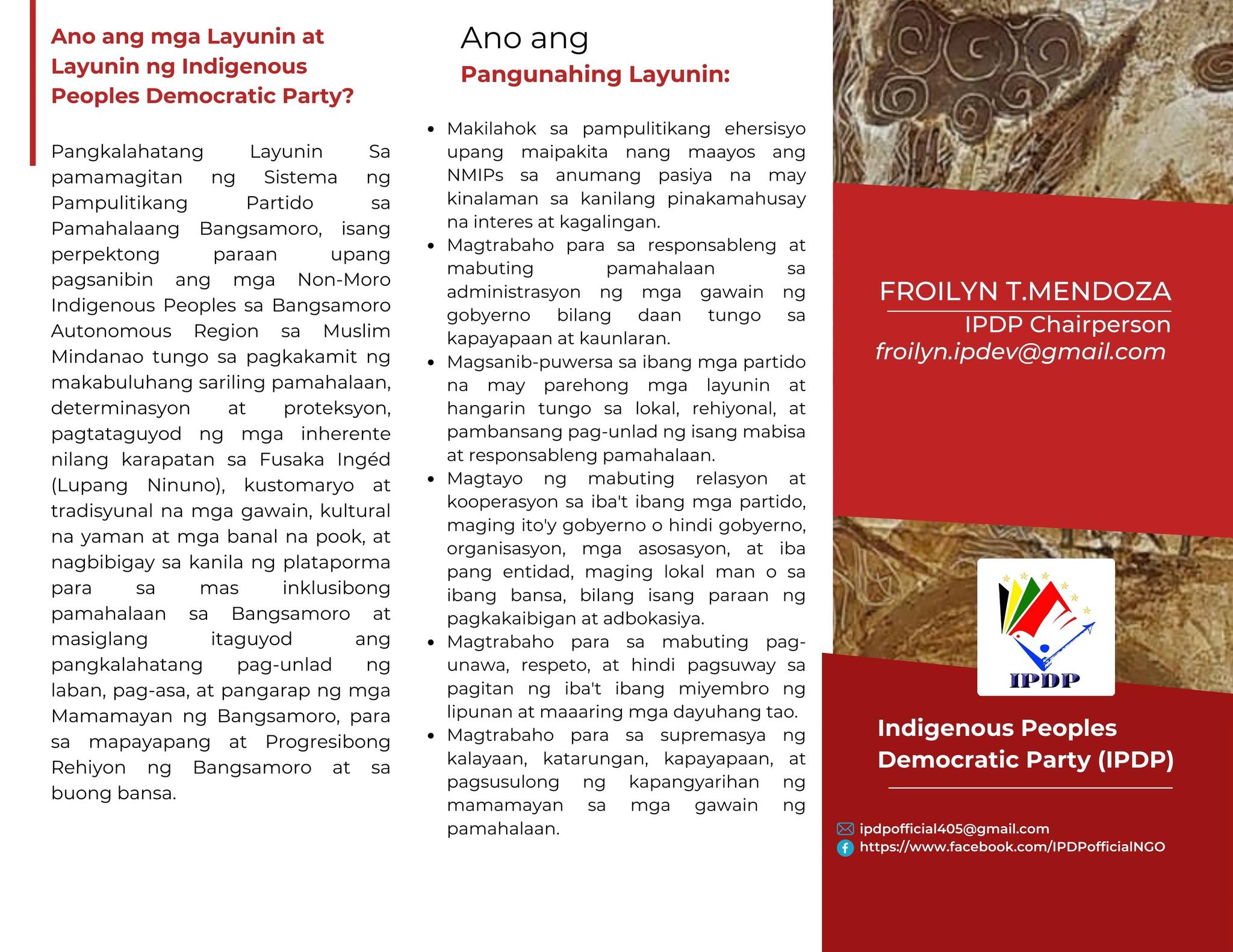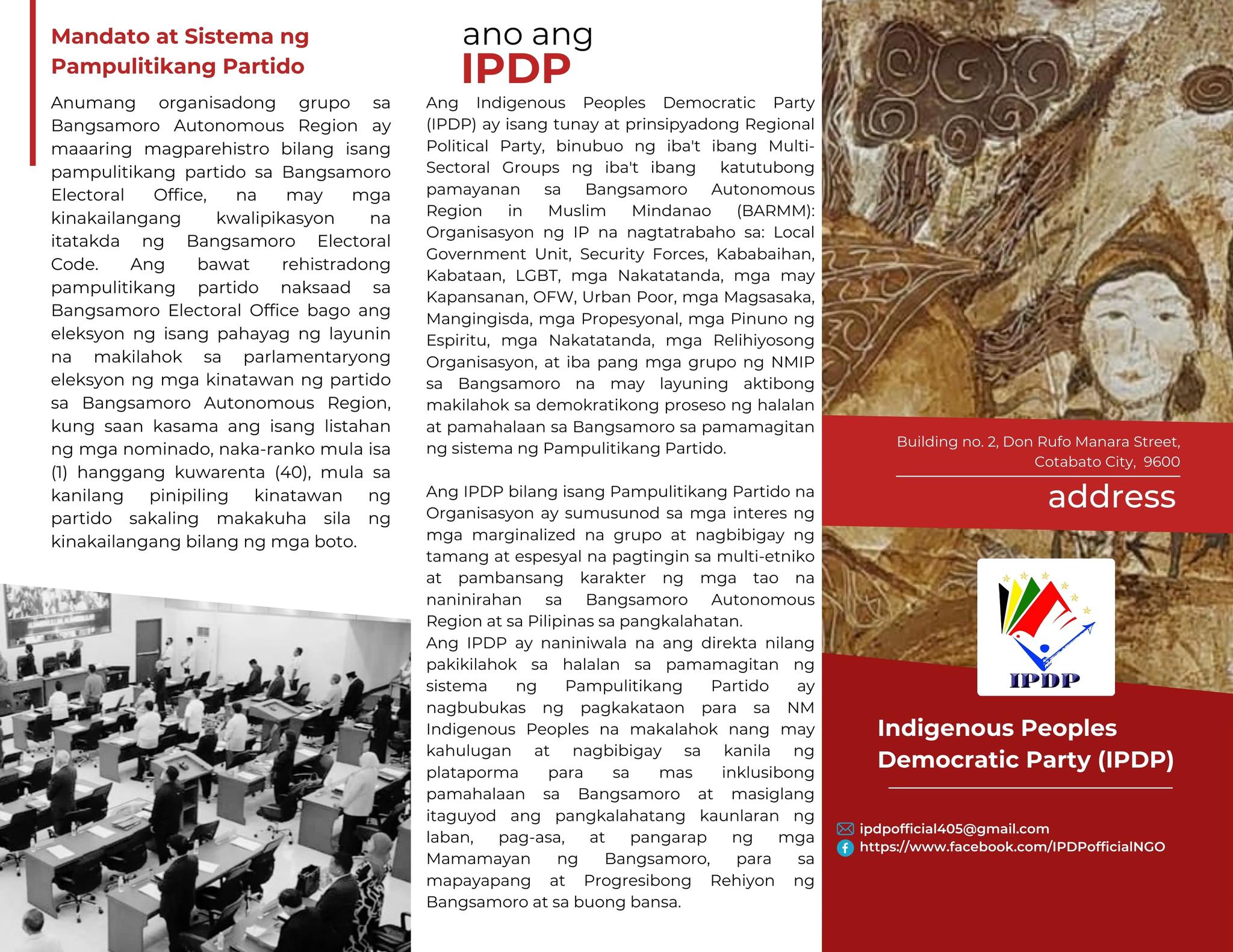Protecting the rights and welfare of the non-Moro Indigenous Peoples in the Mainland of BARMM and other Group of Ethnic minority in Lanao Del Sur, Special Geographoc Areas and Island Provinces of the BARMM through the enactment of the Indigenous Peoples code by 2025.
Encourage active Participation of Non-Moro IP's and other ethnic in the BARMM in the conduct of public consultation and take concreate through submission of their comments and recommendation to better enhnce the IP code.

The passage of the Bangsamoro Organic Law (BOL) in 2018 represents a significant milestone in the recognition and protection of the rights of Indigenous Peoples within the Bangsamoro Autonomous Region in Muslim Mindanao (BARMM). This law is part of the Philippines' efforts to address historical injustices and ensure the rights of all inhabitants, including Non-Moro Indigenous Peoples (NMIPs), within the region. The BOL provides for the establishment of a political entity that aims to provide greater autonomy to the predominantly Muslim regions in Mindanao, recognizing the right to self-determination of the people in these areas. It is a product of a peace agreement between the Philippine government and the Moro Islamic Liberation Front (MILF), intended to end decades of conflict in the region. For the NMIPs, the BOL acknowledges their existence and distinct identity within the framework of the Bangsamoro Autonomous Region. It includes provisions to protect their rights to their ancestral domains, culture, and traditions, and ensures their participation in the governance of the region. The law mandates the creation of mechanisms to ensure that Indigenous Peoples' rights are protected and promoted, including the right to participate in decision-making processes on matters affecting their rights and interests. The recognition of NMIPs under the BOL highlights the complexity of ensuring the rights of diverse cultural groups within a framework designed to address the aspirations for autonomy and self-determination of the Muslim majority in the BARMM. This legal acknowledgment is a step towards reconciling the different identities and interests in the region, aiming to foster peace and unity while preserving the rich cultural diversity of the Philippines. The implementation of these provisions is crucial for the NMIPs to benefit from the law's protections. This includes the establishment of mechanisms for the participation of Indigenous Peoples in the Bangsamoro government and the protection of their ancestral lands and resources. The effectiveness of these measures in safeguarding the rights and cultural heritage of NMIPs within the BARMM remains a critical area of focus for both the government and civil society organizations. The BOL's enactment into law marks a hopeful step towards peace and the recognition of the diverse cultural fabric of the Philippines. However, its success in protecting the rights and identities of NMIPs, alongside those of the Moro population, depends on its faithful implementation and the continuous dialogue among all stakeholders in the BARMM. This approach is essential in ensuring that the region can move forward in unity while respecting the unique contributions of each cultural group to the tapestry of Philippine society.


